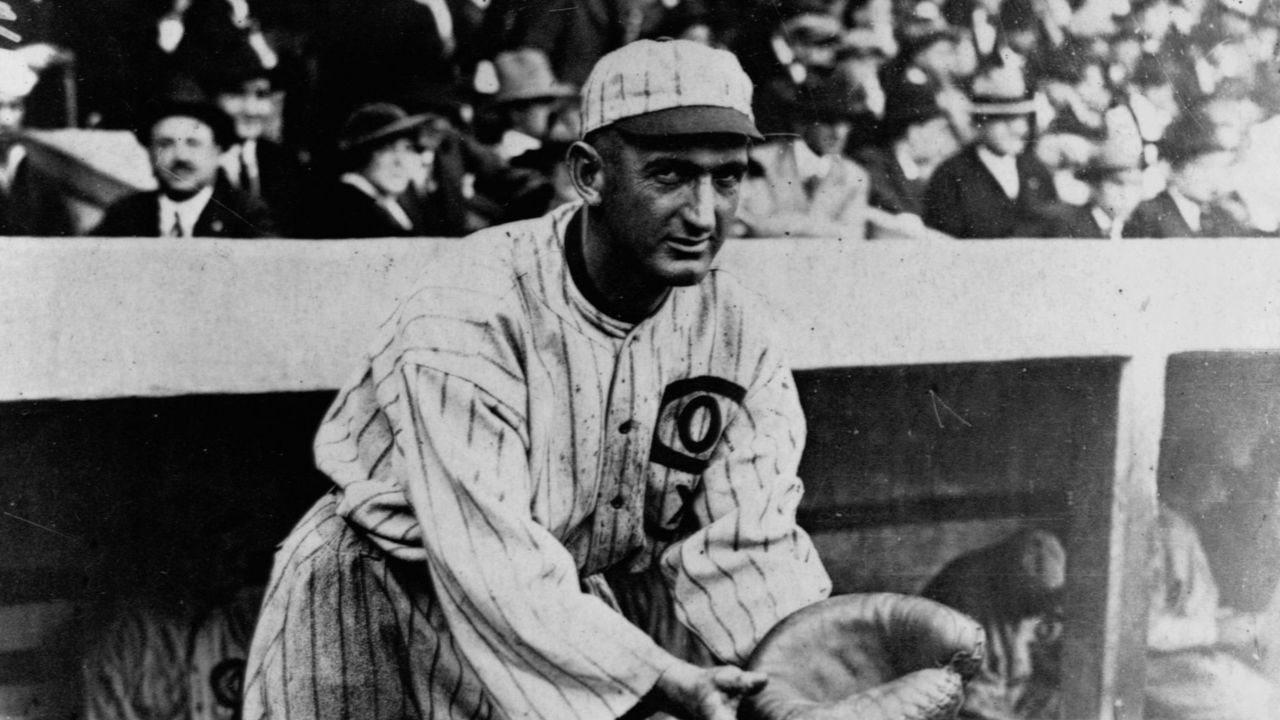Pete Rose and Joe Jackson are out of MLB purgatory. That's a mistake
Pete Rose and Joe Jackson have been removed from Major League Baseball's ineligible list in a stunning and precedent-shifting decision by commissioner Rob Manfred.
ESPN's Don Van Natta Jr. reported the story.
Van Natta obtained a letter written by Manfred to Jeffrey Lenkov, an attorney for Rose, who petitioned for Rose's removal from the list earlier this year. The commissioner said in the letter his rationale came down to Rose's death, and he overturned the long-standing precedent regarding violations of Rule 21, which covers sports betting.
"Obviously, a person no longer with us cannot represent a threat to the integrity of the game," Manfred wrote. "Moreover, it is hard to conceive of a penalty that has more deterrent effect than one that lasts a lifetime with no reprieve."
Manfred appeared to be swayed by the semantic case arguing that a lifetime ban should be interpreted to mean punishment ends with a person's death. Rose died in September at the age of 83.

Rose was ruled to be "permanently ineligible" in 1989 by commissioner A. Bartlett Giamatti and placed on the list with a handful of others who had run afoul of baseball's codes of conduct. Rule 21 contains no language about "lifetime" bans. Unless a specific length of penalty is called for in certain subsections of the rule, offending players are otherwise "declared permanently ineligible."
There was a long-standing precedent about what "permanently ineligible" meant. Swede Risberg was the last survivor of the eight members of the 1919 White Sox who were placed on the list, and he died 50 years ago.
On Tuesday, Manfred changed the language of MLB's toughest penalty, writing, "I have concluded that permanent ineligibility ends upon the passing of the disciplined individual, and Mr. Rose will be removed from the permanently ineligible list."
Many will celebrate this decision, which could open the door for the all-time hits leader to join the Hall of Fame when one of the eras committees considers his case in 2027.
Rose's backers argue Cooperstown is a museum and not a court in which judgment is passed on moral character. (In addition to gambling on baseball, Rose was accused of statutory rape in 2017 and served prison time for tax evasion in 1990.)

Many have debated whether Jackson should have been punished at all. He hit .375 in the 1919 World Series, hardly the numbers of someone out to negatively affect the outcome. I sympathized with Jackson, too, when I watched "Field of Dreams" and "Eight Men Out."
But this isn't about feelings.
Manfred's decision isn't wrong because of anything to do with moral character - that's a separate issue - or playing ability. It is a damaging decision because of a word he mentioned in his letter: deterrence.
Permanence is forever. It deters to the fullest effect. That was the spirit within the rulings against the Black Sox, Rose, and others with an eye on the sport's integrity.
Quite simply, MLB's most powerful tool of deterrence is now limited to a finite period. That is significant because a bronze plaque in Cooperstown will outlast the lifetime of any player.

Let's imagine a future player hits 600 home runs but was banned for placing wagers on MLB games. He knows he broke Rule 21, but knows he could still be immortalized in Cooperstown, even if he's unable to attend the ceremony. Players care deeply about enshrinement.
Reducing the deterrent effect of breaking the one rule that players know they cannot break - the one rule that's posted in every major-league clubhouse and is most tied to the game's integrity - comes at an inopportune time.
Legal sports gambling is now a way of life in many North American jurisdictions. Removing the ultimate penalty opens the door to bad actors, even if only slightly.
Just last year, Ippei Mizuhara, the interpreter for Shohei Ohtani, the sport's greatest star, was caught wagering millions of dollars of Ohtani's baseball earnings. (Mizuhara made thousands of wagers, but investigators say he did not bet on baseball.)

The precedent change will also rekindle the debate over other forms of cheating, like steroid use. Manfred was already extremely lenient to players caught in the Astros' sign-stealing scandal.
One can argue MLB should make this ruling because it appears hypocritical to accept sponsorship and advertising money from gambling outlets while also banning players who have placed wagers. (Full disclosure, theScore has a long-term partnership with the Toronto Blue Jays.) But sports gambling is so popular because bettors believe the outcomes of games are legitimate. It only takes one major scandal to rock that belief.
Ultimately, Manfred's ruling is about more than Rose and some long-dead White Sox players from more than a century ago. Integrity underpins our sports, and Manfred took a little chunk out of baseball's.
Travis Sawchik is theScore's senior baseball writer.